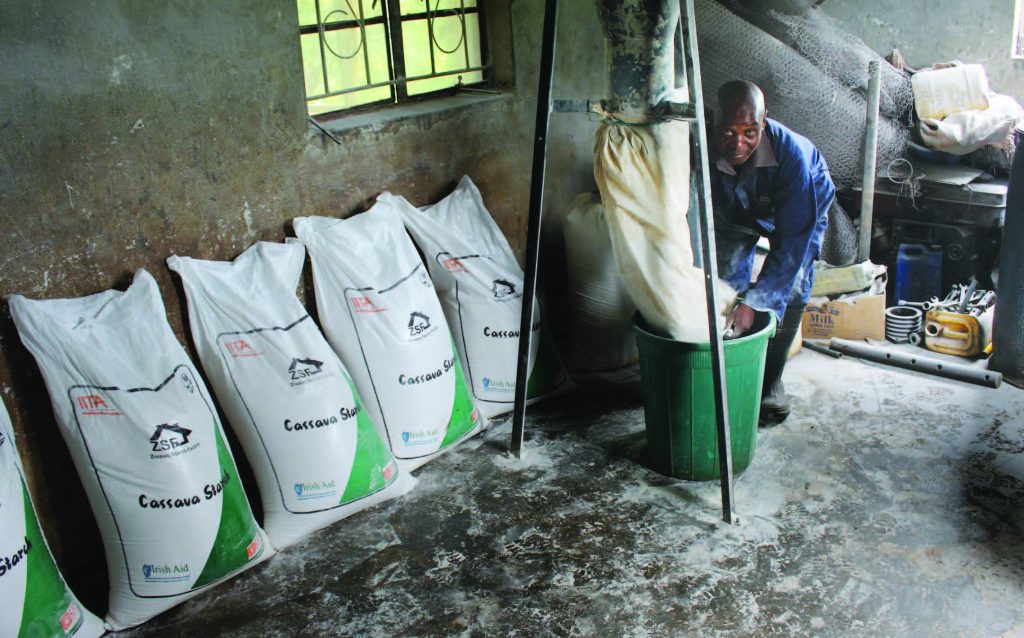Cassava promises much more
PATRICK ZGAMBO
Contributor
Long regarded as just a snack and cashless root, Malawi’s cassava is getting attention and may in a not-too-distant future spread its relevance beyond traditional food industries.
For Malawian communities that produce cassava as a staple, mostly along Lake Malawi, reinventing the root crop to boost their income and nutrition has for decades been top of agenda without much success.

Lately, the Ministry of Agriculture, reeling from the shrinking tobacco markets, has embraced cassava and other tubers as viable alternatives for smallholder farmers, especially women and the youth, if value addition is adopted.
Masauko Zuwawo’s family has been traditionally producing maize and cassava as staple food and tobacco for commercial use.
Over the past few years, the cash crop has steeply lost its world market and prices have been falling.
“We had to adapt, so we invested more effort in the other two alternatives. Maize always had an obvious little potential return given our land size. What was more logical was to increase cassava production and instead trade in cassava value-added products because of the rapidly emerging industry,” says the smallholder farmer.
Zuwawo runs a small cassava factory that produces cassava flour and energy briquettes on the outskirts of Lilongwe.
Like over 200 other Malawian establishments and individual members, the processing factory operates under the National Cassava Processors Association (NCPA), an umbrella association and interest group of local cassava value-adding processors.
NCPA aims at breaking barriers in the production and distribution of high quality and certified cassava-based industrial and energy products locally and internationally.
NCPA members are supported by the Kulima– More Income and Employment in Rural Areas of Malawi (Miera) programme, implemented by GIZ, the a German development agency, on behalf of that country’s Federal Ministry for Economic Cooperation and Development (BMZ) and the European Union.
The programme run in conjunction with Malawi’s Ministry of Agriculture and the Root and Tuber Crops Development Trust (RTCDT), promotes seven value chains, including cassava, to increase income and employment opportunities for rural populations.
It targets smallholder farmers, small or medium-sized enterprises (MSMEs) to improve their incomes and livelihoods in the face of challenges like small landholdings, poor access to inputs, services and markets.
The project seeks to narrow barriers to market integration and enhance opportunities for MSMEs to engage in value addition, through increasing productivity, processing of raw products or reaching better markets.
Today, Zuwawo proudly owns Cassava processed product.
Zuwawo Starch Factory produces, packages and distributes branded cassava starch, kondowole (cassava flour) and high-quality cassava flour (HQCF) mostly used for baking and as a stabiliser in the food industry.
“I solely live on my small factory now and am not going back to tobacco farming. At least for the foreseeable future,” he says.
The income from Zuwawo’s factory has been increasing over the last five years.
Lester Kasiyamaliro of Nkhotakota District along Lake Malawi is another entrepreneur in the programme. His small diesel-powered factory turns tonnes of cassava produced in his shoreline district and neighbouring Nkhata Bay and Mzimba districts into industrial HQCF.
Kasiyamaliro has a stable market and bosses the HQCF market along the shoreline of Lake Malawi from central up to north west districts. The quality flour dominates the cassava bread industry in the area.
“The market is stable and I can only grow as more industries and domestics are requiring processed cassava products now,” he says.
Kasiyamaliro’s factory has just installed a solar drying facility that enables him to process HQCF throughout the year regardless of the season.
The facility is funded by a contributory loan he has self-financed as part of the investment from the successful HQCF business.
Both Kasiyamaliro and Zuwawo acknowledge that the main challenges with the cassava value addition is lack of cassava during off season and a lack of drying equipment during the rainy season when sun-drying is the only option for many processors.
As a result, Kasiyamaliro invested in a solar-drier and mass produce during the period fresh cassava is in season.
He acknowledges the machinery requires substantial investment, often out of reach for many MSMEs.
He says if government and stakeholders are really serious on developing the sector, they should enable cassava processors access machinery to mass produce value-added tubers.
“The market for value-added cassava products is growing, especially now that we are using cassava from improved varieties in Malawi,” says Kasiyamaliro.
The two farmers say cassava has changed their lives and its future looks assuring for them and Malawi than other crops, including tobacco.
However, they implore the government to further reduce taxation on machinery for processing equipment for root crops if the industry should grow the profitable value addition.
If that happens, maybe cassava will finally deliver on its promise to grow Malawi’s economy and become more than just a snack.





